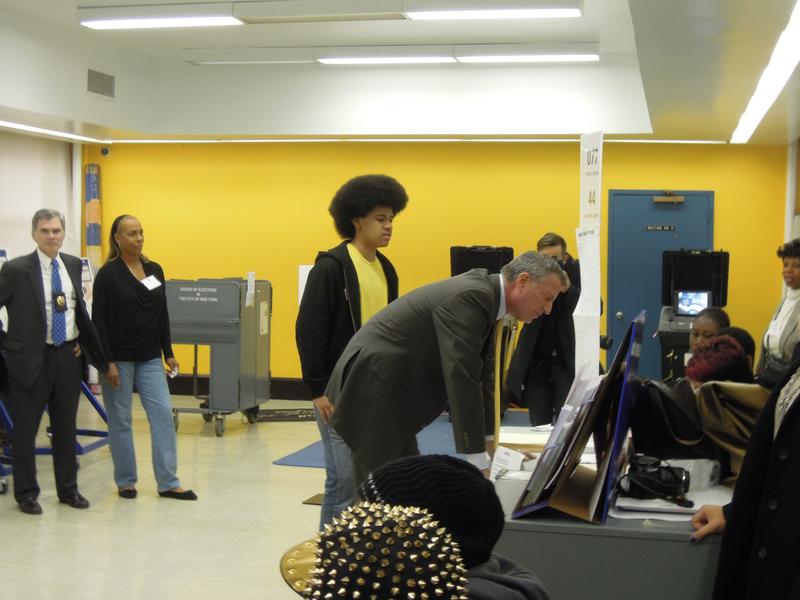
In another revelation about the de Blasio administration's ill-fated attempt to improve the voting process, the mayor's office said Thursday that it had sent out letters containing inaccurate information to around 30,000 New Yorkers.
Also, the third-party vendor that City Hall had initially blamed for the mix-up, Civis Analytics, insisted they had provided an accurate database, but said that problem arose because the mayor's office that had conducted a faulty search.
On Tuesday, WNYC reported the mayor's DemocracyNYC initiative sent out mailers to 400,000 New Yorkers saying that they were considered "inactive" voters and needed to take corrective action before the November elections. Some of the recipients thought the letter was a scam or an effort to suppress the vote--especially since a number of them called the city Board of Elections and learned their voting registration status was perfectly fine.
At a press conference Thursday morning Mayor Bill de Blasio continued to downplay the issue, insisting that the goal of drawing more people into the voting process was a righteous one and would not confuse many voters.
"Some, but very few were inaccurate," he said. "Any database has the chance of being imperfect, apparently that was a database we got from the Board of Elections. But the goal was the right goal."
Later, mayoral aides and representatives from Civis clarified that the confusion stemmed from a mistake in how workers at the DemocracyNYC initiative had searched a national database, and that about 8 percent of the letters were incorrect.
Instead of searching for inactive voters inside New York, City Hall's query had included some people who had inactive registrations at their earlier residences outside of the five boroughs. As a result, around 11,000 of the people who got the letter were active registered voters in New York City. An additional 19,000 were New York City residents who weren't registered to vote here.
"Our software enables the city's data analytics team to manage data and create lists in support of important civic efforts, such as public health awareness campaigns. We were not specifically contracted by Democracy NYC," said Amanda Moss, a spokeswoman for Civis Analytics, who explained her company had provided the software and database but did not conduct the search themselves. "After learning of the errors associated with New York City’s inactive voter letter campaign, Civis assisted the City in conducting an extensive analysis to identify the root of the problem. Together we determined that the error lies not in the data itself, but in the way the list was filtered from the original dataset."
The city and state Boards of Election insist the lists weren't obtained from their offices, and should have been cross-checked with them first. They've been fielding concerned calls all week. Todd Valentine, the Co-Executive Director of the New York State Board of Elections, expressed dismay that good intentions had gone so badly awry.
“We urge any organization seeking to provide voters with voter registration data to utilize the official New York State voter registration list,” he said. “I don’t understand why anyone would pay a vendor when you can get accurate information from us for free."
"All along we were concerned about foreign actors sowing confusion and dissension among our voters," he said. We didn’t realize we had to worry about our own local governments and so-called good government groups."
With "good government groups" Valentine was referencing another mishap reported to them in recent weeks where about 8,000 voters got texts from Common Cause New York warning them their party had changed recently. He said the some of the voters received the message even though their party affiliation had not been changed.
Common Cause New York said they received their data from a company called Catalyst, and stood by their efforts.
"What we want is for voters to check themselves," said Susan Lerner, the executive director of Common Cause New York. "Nobody has a monopoly on helping voters, here. Not enough information is provided, period.
"To say that we should never communicate unless we have 100 percent certainty that the information is absolutely perfect, well we know that the information provided by the board is never perfect," she said. "The vast majority of people have thanked us."
